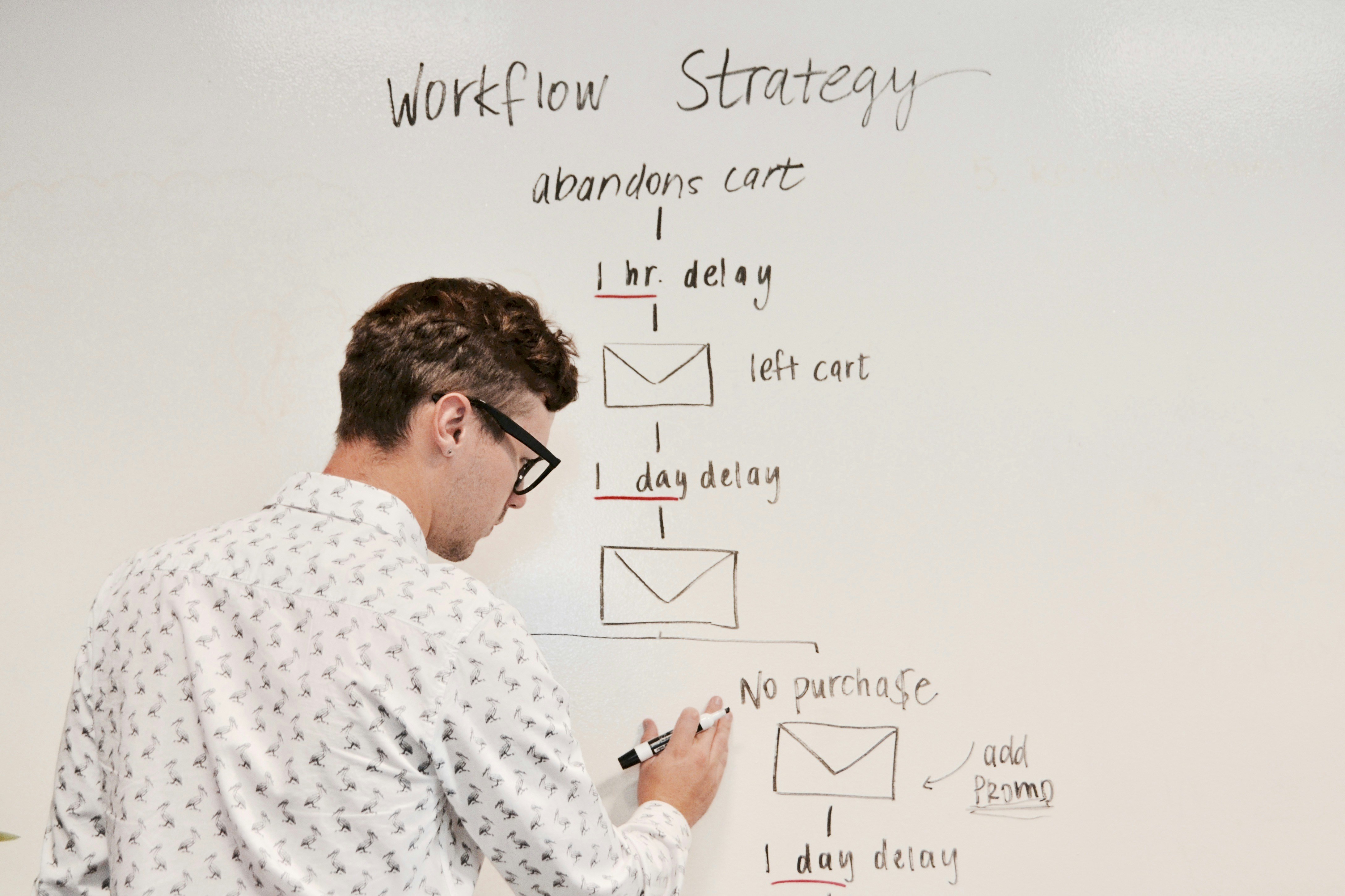How to Use AI and Automation for Personalized Marketing at Scale
November 21, 2024

AI and automation are revolutionizing personalized marketing, enabling businesses to deliver tailored experiences at an unprecedented scale. By leveraging these technologies, marketers can overcome the challenge of creating individualized content for vast customer bases while significantly improving efficiency and relevance.
AI-powered marketing automation allows you to create detailed customer profiles, generate personalized content, and deliver targeted messages across multiple channels, all without extensive manual effort. Revenue from AI software is expected to reach $126 billion by 2024, highlighting its growing importance in the marketing landscape. This technology empowers you to analyze customer data, predict behaviors, and automate interactions in ways that were previously impossible.
You can now use AI tools to create and generate ads at scale, automate email marketing campaigns, and provide personalized customer service through chatbots. These capabilities not only save time but also enhance the customer experience, leading to improved retention rates and higher conversion rates. By adopting AI and automation in your marketing strategy, you'll be able to deliver the right message to the right audience at the right time, effortlessly scaling your personalization efforts.
Understanding Personalization in Marketing
Personalization in marketing leverages data and technology to deliver tailored messages and experiences to individual customers. It aims to increase relevance, engagement, and conversions throughout the customer journey.
The Role of AI in Personalization
AI transforms personalization by analyzing vast amounts of customer data to identify patterns and preferences. You can use AI-powered tools to automate content creation, product recommendations, and email campaigns.
These tools help you segment audiences more effectively and predict customer behavior. For example, AI can analyze purchase history to suggest complementary products or determine the best time to send promotional emails.
E-commerce platforms can implement AI chatbots to provide personalized customer service. These chatbots can answer queries, offer product suggestions, and guide customers through the purchasing process.
The Impact of Personalization on Customer Experience
Personalization significantly enhances the customer experience by making interactions more relevant and valuable. You can use AI to create personalized experiences across multiple channels, including websites, mobile apps, and social media.
By tailoring content to individual preferences, you increase engagement and foster brand loyalty. Personalized product recommendations can boost sales by showcasing items that align with each customer's interests.
AI-driven personalization also improves customer service by anticipating needs and providing proactive solutions. This approach reduces friction in the customer journey and increases satisfaction.
AI and Automation Tools for Effective Marketing
AI and automation tools are revolutionizing marketing strategies, enabling personalized campaigns at scale. These technologies enhance content creation, streamline processes, and deliver tailored experiences to customers.
Leveraging AI Tools for Content Creation
AI-powered marketing tools can significantly boost your content creation efforts. Use AI writing assistants like Jasper or Copy.ai to generate compelling product descriptions, blog posts, and social media content. These tools analyze vast amounts of data to produce relevant, engaging copy tailored to your target audience.
For visual content, try Canva's AI-enhanced design features or DALL-E for unique image generation. These tools help you create eye-catching visuals that resonate with your brand and audience preferences.
Implement AI-driven content optimization tools like Clearscope or MarketMuse to improve SEO performance. These platforms analyze top-ranking content and provide recommendations to enhance your content's relevance and search visibility.
Improving Efficiency with Marketing Automation Platforms
Marketing automation platforms integrated with AI capabilities can streamline your workflows and improve campaign effectiveness. Utilize tools like HubSpot or Marketo to automate repetitive tasks such as email marketing, lead nurturing, and social media posting.
Implement AI-powered chatbots like Intercom or Drift to provide 24/7 customer support and qualify leads. These tools can engage visitors, answer common questions, and route complex inquiries to human agents when necessary.
Leverage predictive analytics features in platforms like Salesforce Einstein to forecast customer behavior and optimize your marketing strategies. These insights help you identify high-value prospects and tailor your messaging for maximum impact.
Strategies for Personalized Marketing at Scale
AI-powered tools enable marketers to deliver tailored experiences to individual customers while reaching large audiences. These strategies focus on leveraging data and automation to create targeted campaigns and seamless customer journeys across channels.
Segmentation and Targeted Campaigns
AI algorithms analyze customer data to create highly specific segments based on behaviors, preferences, and demographics. This allows you to craft personalized messages for each group.
Use AI-powered tools to build detailed ideal customer profiles. These profiles combine internal data on customer behaviors with external sources like social media activity.
Implement dynamic content in your emails and website. AI can automatically insert relevant product recommendations, offers, or content based on each visitor's profile and browsing history.
Utilize predictive analytics to identify which customers are most likely to convert. This allows you to prioritize your marketing efforts and allocate resources more effectively.
Consider using AI chatbots to provide personalized product recommendations and support. These can engage customers 24/7 and gather valuable data for further segmentation.
Omnichannel Marketing and Customer Journeys
Create cohesive experiences across all touchpoints by using AI to track and analyze customer interactions. This ensures consistent messaging and seamless transitions between channels.
Implement AI-driven tools to personalize content across email, social media, and your website. This creates a unified brand experience tailored to each customer's preferences.
Use machine learning algorithms to optimize send times for emails and social media posts. This increases the likelihood of engagement by reaching customers when they're most receptive.
Leverage AI to create personalized product bundles or cross-sell recommendations based on purchase history and browsing behavior. This can significantly boost average order value.
Implement AI-powered retargeting campaigns that adjust content and timing based on a customer's previous interactions with your brand. This keeps your products top-of-mind without being intrusive.
Optimizing AI for Improved Marketing ROI
AI-driven tools can significantly enhance marketing ROI through data-driven insights and personalized customer experiences. By leveraging advanced analytics and predictive capabilities, you can optimize campaigns and product recommendations for maximum impact.
Analytics and Performance Data
AI-powered analytics platforms provide deep insights into your marketing performance. You can track key metrics like conversion rates, customer lifetime value, and engagement levels across channels. Tools like Google Analytics 4 use machine learning to identify trends and anomalies in your data.
Predictive analytics helps forecast future campaign performance. This allows you to allocate budgets more effectively and focus on high-potential audiences. AI can also automate A/B testing, rapidly identifying winning ad variations.
For e-commerce, AI-driven attribution models give a clearer picture of which touchpoints drive conversions. This helps you optimize your marketing mix and customer journey.
Using Predictive AI for Personalized Product Recommendations
AI-powered recommendation engines analyze customer behavior patterns to suggest relevant products. These systems can dramatically increase cross-selling and upselling opportunities.
On your e-commerce site, implement AI that tailors product displays based on browsing history and purchase behavior. This creates a unique shopping experience for each visitor, increasing engagement and conversion rates.
Email marketing tools with AI capabilities can automatically segment your list and send personalized product recommendations. This ensures each customer receives relevant offers, boosting click-through and purchase rates.
AI-driven content creation tools can generate personalized product descriptions and ad copy at scale. This saves time while ensuring messaging resonates with specific customer segments.
Case Studies and Success Stories
AI and automation have revolutionized personalized marketing, enabling brands to deliver tailored experiences at scale. Companies across industries have leveraged these technologies to enhance customer engagement, drive conversions, and gain a competitive edge.
E-Commerce and Personalized Marketing
Sephora's AI-powered beauty advisor demonstrates the power of personalization in e-commerce. By implementing a virtual assistant, Sephora provides customized product recommendations to millions of customers, replicating the in-store experience online.
You can adopt similar strategies using AI-driven tools like:
Predictive analytics to forecast customer preferences
Dynamic pricing algorithms to optimize offers
Product recommendation engines based on browsing history
These technologies allow you to create personalized shopping experiences that boost conversion rates and customer satisfaction. By analyzing vast amounts of data, AI helps you understand individual customer needs and tailor your marketing efforts accordingly.
Maximizing Customer Service with AI-Powered Chatbots
Domino's Pizza showcases how AI chatbots can transform customer service and marketing. Their AI-powered assistant handles orders across multiple platforms, providing a seamless experience for customers while reducing operational costs.
To implement AI chatbots in your marketing strategy:
Use natural language processing to understand customer queries
Integrate chatbots with your CRM to provide personalized responses
Employ sentiment analysis to gauge customer satisfaction in real-time
AI chatbots enable you to offer 24/7 support, handle multiple conversations simultaneously, and gather valuable customer insights. This technology not only improves customer service but also frees up your team to focus on more complex tasks, driving efficiency and cost savings.


